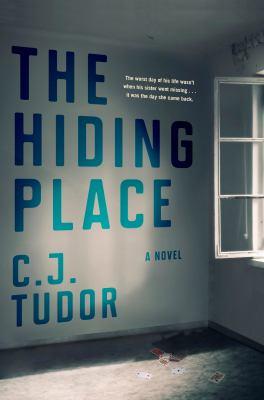
The hiding place : a novel
Joe never wanted to come back to Arnhill. After the way things ended with his old gang--the betrayal, the suicide, the murder--and after what happened when his sister went missing, the last thing he wanted to do was return to his hometown. But Joe doesn't have a choice. Because judging by what was done to that poor Morton kid, what happened all those years ago to Joe's sister is happening again. And only Joe knows who is really at fault. Lying his way into a teaching job at his former high school is the easy part. Facing off with former friends who are none too happy to have him back in town--while avoiding the enemies he's made in the years since--is tougher. But the hardest part of all will be returning to that abandoned mine where it all went wrong and his life changed forever, and finally confronting the shocking, horrifying truth about Arnhill, his sister and himself. Because for Joe, the worst moment of his life wasn't the day his sister went missing. It was the day she came back.
Available Copies by Location
| Location | |
|---|---|
| Community Centre | Available |
| Stamford | Available |
Browse Related Items
| Subject |
| Homecoming > Fiction. Teachers > Fiction. Secrecy > Fiction. Revenge > Fiction. Murder > Fiction. Siblings > Fiction. Abandoned mines > Fiction. England > Fiction. |
| Genre |
| Psychological fiction. Thrillers (Fiction) |
- ISBN: 9780385690102
-
Physical Description
print
278 pages ; 24 cm - Publisher [Place of publication not identified] : [publisher not identified], 2019.
Additional Information



